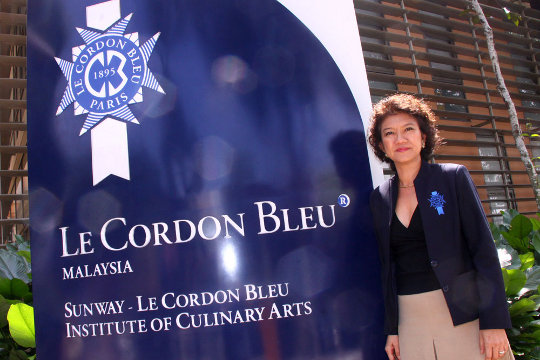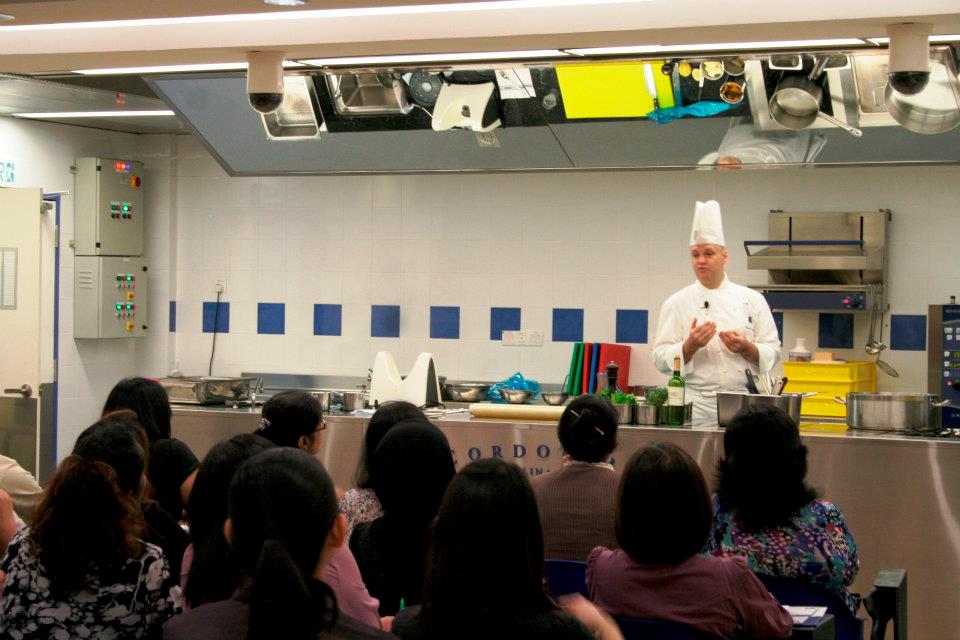A dash of French to our everyday cuisine - part 3 of our culinary series

Afterschool Team
November 19, 2012
France is known for their amazingly high culinary standard and techniques such as flambeing, poaching, deglazing, and sauteing. Earlier this year, internationally renowned culinary art school, Le Cordon Bleu opened its school in Sunway University, Malaysia.
"The demand for management staff in the restaurant is tremendous, particularly those with culinary skills," said Ming Rathswohl Ho, General Manager of Le Cordon Bleu, Malaysia.
Le Cordon Bleu emphasises on methods and techniques that can be applied to any style of cuisine. "Contrary to what most people think, we don't teach recipes here," Ho explained. "Instead the LCB aims to teach French cooking terms tand techniques that can be applied to something that felt more accessible and local."
"Aside from techniques, we want to inculcate professionalism, discipline and cleanliness, which we believe is important in raising the quality of our food service industry."
Chef Franck Bruwier, Technical Director & Cuisine Chef Instructor of LCB Malaysia (see right photo), added that aside from raising the standards, he notice that most upcoming young chefs are fixated more on the food’s visual presentation rather than taste.
“We are taste designers,” Bruwier emphasises. He belives that each meal must combine all the taste in each mouthful.
“Playing with texture is also important. A dish must be able to highlight the interplay of textures such as silkiness, smoothness or crunchiness."
“Take a blind man for instance; if he is served with food that has elaborated decorations, high up in the air, and forks in one of the trimmings, he will only taste the toppings. He will then feel upset because he is spending so much on a plain meal," he points out.
Levelling up the industry
According to Ho, only 30% of the country’s 16,000 culinary graduates work for the tourism and hospitality industry.
One of the deterrents of this industry would be the low pay. She said says that the average salary of a fresh graduate is between RM1, 500 and RM4, 000 whereas in other countries such as Singapore and Macau, they could earn better.
“There is a shortage and that’s why we collaborate with the Malaysian Centre for Tourism and Hospitality Education, to help support the tourism and hospitality sector,” Ho saidsays.
According to her this collaboration, called MyCenTHE, provides diploma students with stipends and extensive workplace exposure. Graduates will be guaranteed full-time employment with industrial partners. Moreover, students will receive a work allowance worth RM6, 000 per year.
She hopes government would consider foreign students taking up hospitality and tourism courses in Malaysia to serve the country for at least a year or two. According to her, this would help solve the shortage and speed up development.
MyCenTHE members keep their course fees by 25% to 30% lower than the market value.
Ho mentioned that Malaysia Le Cordon Bleu’s fees are comparable to the Thailand branch.





